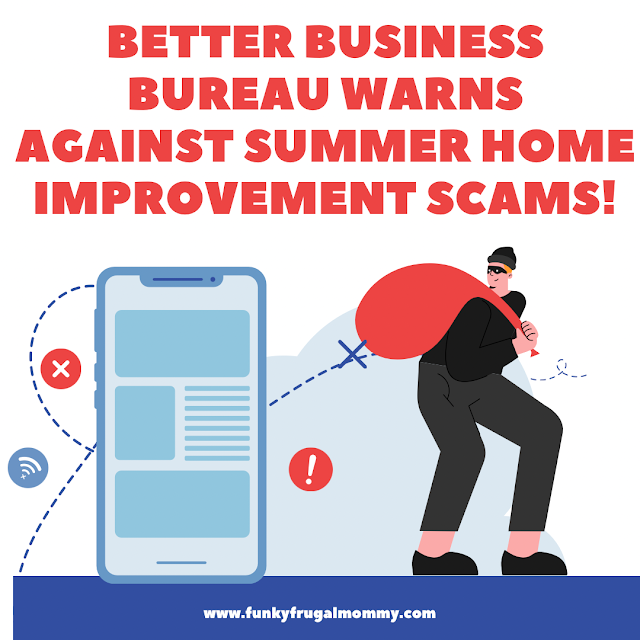But homeowners beware! According to information from the Better Business Bureau (BBB), summer is also the most popular time for home improvement scams. The organization calls these "the riskiest" types of scams, as they can cost homeowners a disturbing average of $1,400 or more.
The BBB measured three things in its Risk Index: susceptibility, exposure, and monetary loss. The result? Face-to-face home improvement scams shot straight to the top of the list, with fake checks coming in at a close second. In 2016 alone, over 32,000 scams were reported to the BBB. While data like this can cause many homeowners to lose heart, Michael Sedio, the Vice President of Operations and General Counsel for the local chapter of the BBB, still believes the industry itself is reliable.
 |
| Beware sketchy home improvement "contractors" going door-to-door this summer. |
Approximately one in five Americans are unhappy with their home decor, but if you're one of them you need to be careful in your home improvement projects. If you're afraid of getting caught up in a scam, here are a few things you can do to prevent that from happening:
- Check License and Insurance
Whether you're working with a contractor because of a recommendation or you found them through a website, a valid license and insurance are incredibly important. According to Cedric Stewart, a real estate consultant at Keller Williams, in the Washington, DC area, many states even have databases where you can look at a contractor's license and ensure it's not expired. - Ask for References
As a rule of thumb, you should be asking for at least three references and contacting them before working with a contractor. Former general contractor Sam Medicraft explained that scammers may have a few projects that went well in the past, which means you need to be careful to contact them. - Don't Pay Up Front
It's normal to have a down payment for any home improvement project. Even air conditioners, which have a lifespan of 10 to 15 years, require a down payment for installation. But if that payment covers the majority of costs, you may want to think twice.


No comments:
Post a Comment